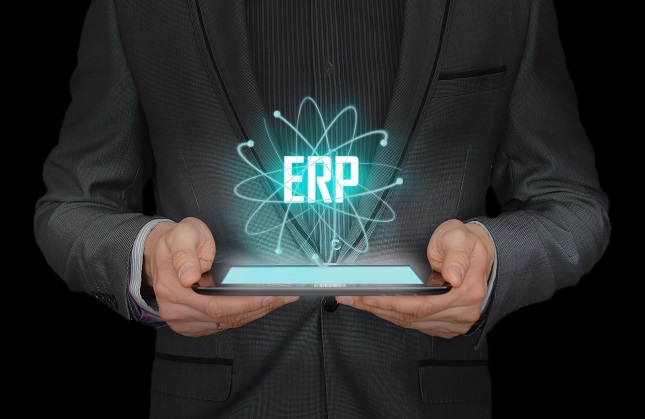Running a small or medium-sized business (SMB) in 2025 means navigating rapidly shifting demands, rising costs, and evolving technology. One of the most critical decisions for growing companies is choosing the right operational software—particularly, whether to adopt a full-scale Enterprise Resource Planning (ERP) system.
While ERP platforms offer centralized control over finance, inventory, sales, HR, and more, they often come with complex implementation, long learning curves, and high total cost of ownership. Fortunately, modern cloud-based tools have made it easier than ever for SMBs to build a custom tech stack tailored to their needs—without the heavy burden of legacy ERP systems.
In this guide, we explore the top alternatives to ERP systems for SMBs, shedding light on flexible, scalable solutions that can empower your business to thrive in 2025 and beyond.
Why SMBs Are Moving Away from Traditional ERP
Legacy ERP systems—like SAP or Oracle’s on-premise versions—were designed with large enterprises in mind. They offer powerful capabilities but often require months (or years) to implement and hundreds of thousands of dollars in licensing, consulting, and maintenance fees.
For many SMBs, that’s simply not sustainable. Common challenges include:
- Excess complexity: Too many features businesses don’t need
- Long deployment cycles: Time to value can take 6–12 months
- High upfront and hidden costs: Licensing, training, and support add up
- Low agility: Difficult to adapt quickly as the business evolves
Rather than being locked into a monolithic ERP platform, modern SMBs are increasingly opting for modular, cloud-based systems that offer the same core functionality in a more user-friendly, affordable format.
What to Look for in an ERP Alternative
Choosing the right ERP alternative depends on your company’s size, industry, and priorities. However, the best options typically share these traits:
- Scalability: Grow with your business
- Modularity: Add features as you need them
- Affordability: Transparent, usage-based pricing
- User-friendly design: Reduce training time
- Integration-friendly: Seamless data sync across platforms
With those criteria in mind, let’s explore some of the top solutions available today.
1) NEX: Smart ERP Alternative for SMB Growth
If you’re searching for the most well-rounded, flexible option on the market, NEX is emerging as a front-runner among ERP alternatives. Built specifically for small to mid-sized businesses, NEX offers a cloud-based suite that combines:
- Inventory management
- Order fulfillment
- CRM & customer support tools
- Real-time analytics and dashboards
- Seamless integration with QuickBooks
What makes NEX stand out is its modular design—you only pay for what you need, with the ability to expand as your operations grow. It’s especially effective for product-based SMBs outgrowing their accounting software and needing more control over inventory, customer experience, and post-sale support.
2) QuickBooks Online + Add-ons (e.g., Fishbowl Inventory)
QuickBooks remains the go-to accounting solution for small businesses, but it can serve as the core of a broader operations system when paired with third-party tools like Fishbowl Inventory.
- QuickBooks handles your finances, billing, and payroll
- Fishbowl manages inventory, light manufacturing, and fulfillment
This combo offers many ERP-like functions without a full ERP license. However, integrations may require some technical support, and scaling beyond a certain point may require migrating to a more robust solution.
3) Odoo: Open-Source Flexibility at Its Finest
For SMBs with access to technical resources, Odoo is a powerful open-source alternative that includes modules for:
- Accounting and invoicing
- Manufacturing
- Project management
- CRM and marketing
- Inventory and warehouse operations
Odoo’s flexibility is unmatched—you can host it on-premise or in the cloud, choose only the modules you need, and customize features extensively. However, setup can be time-consuming without proper guidance or IT support.
4) Method CRM: Perfect for QuickBooks and Xero Users
If your operations revolve around QuickBooks or Xero, Method CRM offers a no-code platform that integrates seamlessly and brings ERP-like automation for:
- Lead and customer management
- Invoicing and payments
- Job tracking and custom workflows
- Real-time sync with accounting systems
It’s affordable (starting around $25/month), highly customizable, and user-friendly—making it ideal for service-based businesses or those looking to reduce double-entry errors between sales and finance.
5) ERPNext: A Robust Open-Source Option
ERPNext is another open-source ERP alternative that caters to startups and SMBs across various industries, including manufacturing, healthcare, education, and services.
Notable features include:
- Multilingual, multi-currency support
- Asset management and depreciation tracking
- Sales and purchase cycle management
- Project management and HR tools
It’s ideal for companies looking for maximum control and no licensing fees—but expect to allocate internal resources or hire a specialist for deployment and customization.
6) Microsoft Dynamics 365 Business Central
Microsoft’s SMB-friendly ERP option, Dynamics 365 Business Central, combines finance, operations, sales, and service into a unified cloud-based solution. It integrates easily with Microsoft 365 and offers strong reporting, scalability, and security.
While it’s a strong solution, cost and implementation time may still pose challenges for very small teams.
Final Thoughts: Build Your Stack Strategically
Full-scale ERP systems still make sense for large enterprises—but for the modern SMB, they’re often more pain than progress. By selecting purpose-built ERP alternatives that align with your business goals, you can create a tech stack that’s more agile, affordable, and tailored to your growth.
Whether you’re replacing spreadsheets, moving beyond QuickBooks, or ditching SAP complexity, today’s market offers scalable alternatives to ERP systems for SMBs that deliver real value—without the overhead.
About the Author
Vince Louie Daniot is a digital strategist and content marketing expert specializing in ERP solutions, SaaS, and SMB technology. With over a decade of experience helping growing businesses navigate digital transformation, Vince writes in-depth, actionable content that bridges complex software with real-world business needs. When he’s not dissecting cloud platforms or optimizing SEO funnels, he’s advising startups on scalable tech stacks.






































